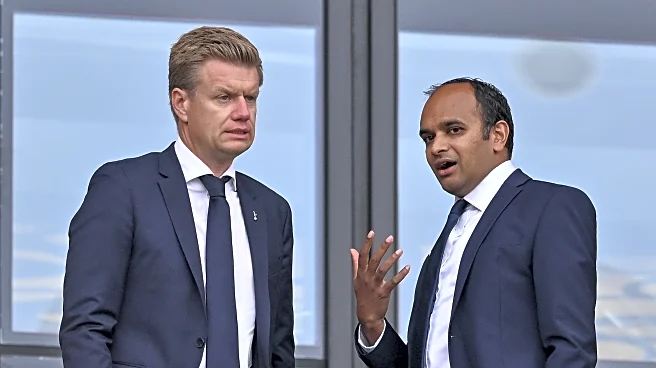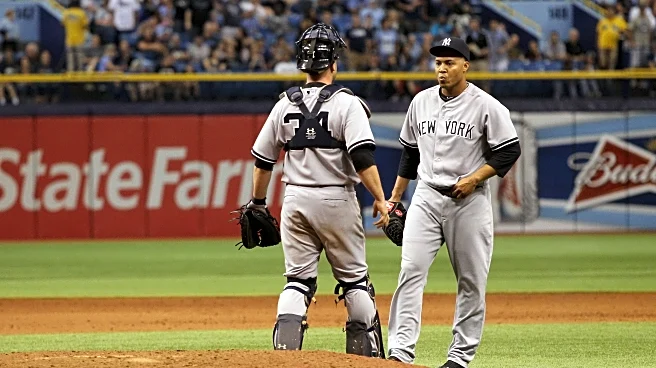Rapid Read • 7 min read
Tim Wellens, a rider for UAE Team Emirates-XRG, has addressed comments made by Quinn Simmons regarding his victory on stage 15 of the Tour de France. Simmons suggested that Wellens benefited from drafting behind a camera motorcycle, which could reduce aerodynamic drag and increase speed. Wellens won the stage after attacking solo with over 40 kilometers remaining, initially breaking away with Simmons. In response to Simmons' remarks, Wellens stated that his victory was due to his strong performance rather than any assistance from the motorcycle. He emphasized that his legs were the key factor in his win, dismissing the idea that the motorcycle played a significant role.
AD
The controversy highlights ongoing discussions about the influence of external factors, such as camera motorcycles, on cycling races. If drafting behind motorcycles provides a significant advantage, it could impact race strategies and fairness. The debate also underscores the importance of adhering to UCI rules, which mandate that motorcycles should neither assist nor hinder riders. This incident may prompt further scrutiny of race conditions and regulations, potentially leading to changes in how races are conducted to ensure fair competition.
The incident may lead to increased attention on the role of camera motorcycles in cycling races. Stakeholders, including race organizers and regulatory bodies, might review current practices to ensure compliance with UCI rules. Discussions could arise about implementing stricter guidelines for motorcycle positioning during races. Riders and teams may also adjust their strategies, considering the potential impact of external factors on race outcomes.
The situation raises ethical questions about the integrity of competitive sports and the influence of technology on performance. It also highlights the cultural dynamics within the cycling community, where sportsmanship and fair play are highly valued. Long-term, this could lead to a shift in how races are perceived and conducted, emphasizing transparency and fairness.
AD
More Stories You Might Enjoy











